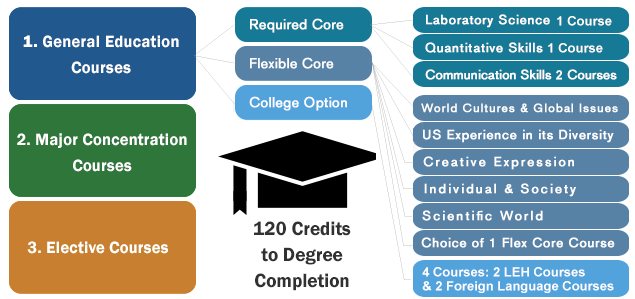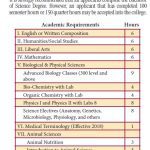Like a bridge connecting different areas of knowledge, general education requirements serve as a vital foundation for your academic journey. They are the compass that guides you through the vast sea of learning, directing you towards a well-rounded education.
But what exactly are these requirements and why are they important? In this discussion, we will explore the purpose of general education requirements, the benefits they provide, and strategies for success in these courses.
So, buckle up and get ready to embark on a voyage of intellectual growth and discovery.
The Purpose of Gen Eds
The purpose of Gen Eds is to provide you with a well-rounded education that prepares you for a variety of academic and professional pursuits. These requirements ensure that you develop a broad knowledge base and a range of skills that are essential for success in today’s evolving world. By taking courses in different disciplines, such as humanities, social sciences, natural sciences, and mathematics, you gain a deeper understanding of the world and its complexities.
Gen Eds also foster critical thinking, problem-solving, and communication skills, which are highly valued in any career path you choose. Through engaging with diverse perspectives and ideas, you learn how to analyze information, evaluate arguments, and express your thoughts effectively. These skills aren’t only beneficial in the classroom but also in your future professions, as they enable you to adapt to new challenges and contribute meaningfully to your field.
Furthermore, Gen Eds promote cultural competence and global awareness. By exploring different cultures, histories, and societies, you develop a broader perspective and a deeper appreciation for diversity. This understanding is crucial in our interconnected world, where you’ll likely interact with people from various backgrounds and navigate complex global issues.
Benefits of General Education Requirements
Engaging in General Education Requirements can have numerous advantages for your academic and professional development. By completing a variety of courses outside of your major, you gain a broad knowledge base that can enhance your critical thinking skills and ability to communicate effectively. General education courses expose you to different perspectives, cultures, and ideas, helping you develop a more well-rounded worldview.
One of the main benefits of general education requirements is that they provide you with a strong foundation in multiple disciplines. This not only makes you a more versatile and adaptable learner, but it also prepares you for the challenges of the workforce. Employers value candidates who can think critically, solve problems, and work collaboratively with diverse teams. General education courses help you develop these skills, making you a more attractive candidate in the job market.
Furthermore, engaging in general education requirements can also help you discover new interests and passions. By exploring different subjects, you may uncover a hidden talent or a field of study that you’d never considered before. This can open up new career opportunities and lead to a more fulfilling and satisfying professional life.
Exploring Different Areas of Study
By exploring different areas of study, you can uncover new interests and passions that can shape your academic and professional journey. General education requirements provide you with the opportunity to delve into various subjects outside of your major or field of expertise. These requirements expose you to a wide range of disciplines, such as literature, history, science, and mathematics, allowing you to broaden your knowledge base and develop a well-rounded perspective.
Engaging in diverse areas of study enables you to discover new areas of interest that you may have never considered before. For example, taking a psychology course might ignite a fascination with the human mind, leading you to pursue further studies in that field. Similarly, exploring the humanities may reveal a hidden talent for writing or a passion for art. These newfound interests can shape your academic journey by guiding your choice of electives, minors, or even a change in major.
Moreover, exploring different areas of study can also have a profound impact on your professional path. By gaining knowledge and skills in multiple disciplines, you become a more versatile and adaptable individual, capable of thinking critically and solving problems from various perspectives. This can enhance your employability and open doors to a wider range of career opportunities.
Developing Critical Thinking Skills
To develop critical thinking skills, you need to focus on analysis, problem-solving techniques, and evaluating different perspectives.
By honing your analytical abilities, you can break down complex issues and identify underlying patterns or connections.
Problem-solving techniques help you find solutions to challenges.
Evaluating different perspectives allows you to consider multiple viewpoints and make well-informed decisions.
Importance of Analysis
Developing critical thinking skills through analysis is essential for a well-rounded education. When you engage in analysis, you’re able to break down complex ideas or problems into smaller parts, allowing you to examine them more closely. This process helps you develop a deeper understanding of the subject matter and enables you to think critically about different perspectives and potential solutions.
Analysis also teaches you to evaluate evidence, identify biases, and make informed judgments. By honing your analytical skills, you become a more effective problem solver and decision maker.
Furthermore, analysis enhances your communication skills, as you learn to present your findings and opinions in a clear and logical manner.
Problem-Solving Techniques
Problem-solving techniques are essential for developing critical thinking skills. When faced with a problem, it’s important to approach it systematically and logically.
Start by identifying the problem and gathering all relevant information. Then, analyze the information to gain a deeper understanding of the problem and its underlying causes.
Once you have a clear understanding, brainstorm possible solutions and evaluate their feasibility and potential outcomes. It’s crucial to think critically and consider different perspectives and alternative solutions.
When implementing a solution, be flexible and open to making adjustments as needed. Reflect on the process and learn from both successes and failures.
Evaluating Different Perspectives
When considering different perspectives, it’s important to approach the evaluation process with an open mind and a willingness to consider alternative viewpoints. Evaluating different perspectives allows you to broaden your understanding of a topic and develop critical thinking skills. By actively engaging with contrasting opinions, you can gain a deeper insight into complex issues and challenge your own preconceived notions.
It’s crucial to listen attentively and respect the perspectives of others, even if they differ from your own. This approach fosters intellectual growth and helps you become a well-rounded individual.
Furthermore, evaluating different perspectives enables you to analyze information more objectively and make informed decisions. Embracing diverse viewpoints encourages intellectual curiosity and nurtures a more inclusive and tolerant society.
Fostering Problem-Solving Abilities
To enhance your problem-solving abilities, the general education requirements focus on equipping you with essential critical thinking skills. These skills are crucial in navigating complex situations and finding innovative solutions. By engaging in courses that emphasize critical thinking, you’ll develop the ability to analyze and evaluate problems from multiple perspectives. This will enable you to approach challenges with a more open mind and consider various solutions.
One way the general education requirements foster problem-solving abilities is through courses that encourage you to think critically about real-world issues. These courses often involve analyzing case studies, conducting research, and engaging in discussions that require you to evaluate evidence and make informed decisions. By actively participating in these activities, you’ll develop the skills necessary to identify problems, think critically about potential solutions, and make sound judgments.
Additionally, the general education requirements include courses that promote problem-solving skills in specific disciplines. For example, mathematics courses teach you how to approach and solve complex problems using logical reasoning and mathematical principles. Science courses, on the other hand, encourage you to apply the scientific method to investigate and solve problems.
Preparing for the Workforce
When preparing for the workforce, it’s important to consider the demands of the job market. Employers are seeking candidates who possess essential skills that can contribute to the success of their organizations.
Developing career readiness skills through general education requirements can greatly enhance your competitiveness and increase your chances of securing employment.
Job Market Demands
Understanding the job market demands is crucial for individuals preparing to enter the workforce. In today’s competitive job market, employers are seeking candidates who possess a diverse set of skills and knowledge. It’s no longer sufficient to have expertise in just one area; employers are looking for individuals who can adapt to changing trends and technologies.
Strong communication and problem-solving skills are in high demand, as well as the ability to work well in teams and navigate through diverse work environments. Additionally, employers value candidates who’ve a global perspective and cultural awareness.
In order to meet these demands, it’s important for individuals to pursue a well-rounded education that includes a variety of subjects and experiences. This won’t only help prepare you for the workforce, but also make you a more competitive candidate in the job market.
Essential Skill Development
In order to thrive in the job market, it’s essential to develop a range of skills that will prepare you for the workforce. These skills aren’t only crucial for securing a job but also for advancing in your career.
One of the most important skills to develop is communication. Effective communication, both written and verbal, is essential in almost every job. Employers also value critical thinking skills, as they enable you to analyze problems and come up with innovative solutions.
Additionally, adaptability and flexibility are highly sought-after qualities in today’s rapidly changing work environment. Being able to learn new technologies and adapt to new situations will set you apart from other candidates.
Finally, teamwork and collaboration skills are vital for success, as most jobs require working with others towards a common goal.
Career Readiness Skills
To succeed in the workforce, you need to cultivate career readiness skills that will set you apart from other candidates. These skills are essential in today’s competitive job market and can greatly increase your chances of securing employment and advancing in your career.
Career readiness skills encompass a wide range of abilities, including communication, problem-solving, teamwork, and adaptability. Employers are increasingly looking for candidates who possess these skills, as they’re crucial for success in the modern workplace.
Developing these skills can be achieved through a combination of education, training, and real-world experience. Taking advantage of internships, volunteering, and extracurricular activities can provide valuable opportunities to practice and refine these skills.
Overcoming Challenges and Building Resilience
Facing obstacles head-on and learning from them is crucial for developing resilience and navigating through life’s challenges. Life is full of ups and downs, and it’s how you respond to these challenges that shapes your character and determines your success. Building resilience isn’t about avoiding adversity, but rather about facing it with determination and a growth mindset.
Resilience is the ability to bounce back from difficult situations and adapt to change. It involves being able to stay focused and positive, even in the face of adversity. Developing resilience takes time and effort, but it’s a skill that can be learned and strengthened through practice.
One way to overcome challenges and build resilience is to embrace a growth mindset. This means believing that your abilities and intelligence can be developed through dedication and hard work. When faced with a setback or failure, instead of giving up, see it as an opportunity for growth and learning. Use the experience to identify areas for improvement and set new goals.
Another important aspect of building resilience is developing a support system. Surround yourself with positive and supportive people who can offer guidance and encouragement during tough times. Seek out mentors or join groups that share similar interests or goals. Having a strong support network can provide you with the emotional strength and motivation needed to overcome challenges.
Strategies for Success in Gen Ed Courses
Developing strategies for success in Gen Ed courses requires a proactive approach and a willingness to adapt to new learning environments. To excel in these courses, you should start by familiarizing yourself with the course syllabus and understanding the expectations of the professor. Take note of important deadlines, assignments, and reading materials. Planning ahead and managing your time effectively will help you stay on top of your coursework.
Active participation in class discussions and activities is another key strategy for success. Engage with the material by asking questions, sharing your thoughts, and participating in group discussions. This not only enhances your understanding but also helps you build relationships with your peers and professors.
When it comes to studying for exams, it’s essential to develop effective study habits. Find a study method that works best for you, whether it’s creating flashcards, summarizing key concepts, or teaching the material to someone else. Additionally, make use of available resources such as tutoring services, study groups, and online resources to supplement your learning.
Lastly, don’t be afraid to seek help when needed. If you’re struggling with a particular topic or assignment, reach out to your professor or classmates for assistance. Utilize office hours and take advantage of any academic support services provided by your institution.
Embracing General Education Requirements
Embrace the value and significance of General Education Requirements by recognizing their role in providing a well-rounded education. General Education Requirements aren’t just a box to check off; they’re an opportunity for personal growth and intellectual exploration. By requiring students to take courses outside their major, these requirements expose them to a variety of subjects and perspectives, helping them to develop critical thinking skills and a broader understanding of the world.
Embracing General Education Requirements also allows you to discover new interests and passions. You may find that a course in sociology or philosophy sparks a curiosity you never knew you had. These requirements push you out of your comfort zone and encourage you to expand your horizons, both academically and personally.
Furthermore, General Education Requirements prepare you for the complex challenges of the real world. In today’s rapidly changing society, employers are seeking individuals with a diverse skill set and the ability to adapt to different situations. By engaging with a range of subjects, you enhance your problem-solving abilities, communication skills, and cultural competence.
Frequently Asked Questions
How Do General Education Requirements Contribute to a Well-Rounded Education?
To have a well-rounded education, you need to understand various subjects. General education requirements expose you to diverse fields, helping you develop critical thinking, communication, and problem-solving skills.
Are There Any Specific Gen Ed Courses That Are Recommended for Students Pursuing a Certain Major?
There are specific gen ed courses that are recommended for students pursuing a certain major. These courses help you gain a broader understanding of your field and develop skills that will be valuable in your future career.
How Can General Education Requirements Help Students Discover Their Interests or Potential Career Paths?
General education requirements help you discover interests and potential careers by exposing you to a variety of subjects. They broaden your knowledge and allow exploration, helping you find what ignites your passion and guides your future path.
Are There Any Alternatives or Exemptions for Students Who Already Have a Strong Background in a Particular Subject Area?
If you already have a strong background in a subject area, there may be alternatives or exemptions available. You should reach out to your academic advisor to see if any options exist for you.
How Do General Education Requirements Prepare Students for the Challenges and Demands of the Modern Workforce?
General education requirements help prepare you for the challenges of the modern workforce by providing a well-rounded education. They give you a broad knowledge base, critical thinking skills, and the ability to adapt to different situations.
Conclusion
In conclusion, embracing general education requirements is essential for developing a well-rounded education. Through exploring different areas of study, developing critical thinking and problem-solving skills, and preparing for the workforce, students gain valuable knowledge and abilities that will benefit them in their future endeavors.
While challenges may arise, it’s important to approach these courses with a positive mindset and utilize strategies for success. Embrace the opportunities that general education requirements offer and you’ll thrive academically and personally.


